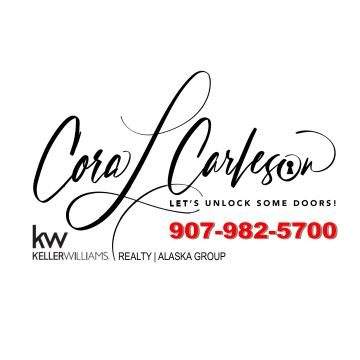Newsletter Cover Stories


Easement? What exactly does that mean?
Okay, there are some extremely complex things about easements. There are also some really simple things about easements. Most of the time, you will not be dealing with the difficult things. Realtors know quite a bit about easements, but there are also a lot of legal things and complexities that lead us to go to other sources for their expertise. The title company is our” go to” for complicated easement issues. They have title officers there that know this stuff forward and backward. Now if you have an easement issue, they can explain what it is, and why it is, but they cannot necessarily help you get if fixed. That’s when we turn to real estate attorneys. These guys and gals can really help get you out of a jam if you are having easement issues.
First, let’s talk about what an easement is: An easement gives a person, company, or government the right to use someone else’s real estate for a specific purpose. It doesn’t grant them an ownership interest. How they can use your property depends on the type of easement. Basically, what it says, is that someone else has the right to use certain portions of your property. Those rights are spelled out on a plat and or as-built survey and on the title report.
Let’s break this down and give you some specific examples.
1) a person: Let’s say that you own 2 lots, each an acre on a nice road. We are going to call them lot A, on the road and lot B, behind lot A with no road access. This works good for you because you don’t need a road to the back property (lot B), you own them both. Now, your son and his wife are going to have their first baby and having that grandchild close by would be oh so wonderful! So, you gift lot B to your son and his family to build a nice house there. However, they have no access to lot B from the street. You would create an easement, usually right at the property line, and grant access from lot A to lot B. Lot A still owns the land but allows lot B to use the land to access lot A’s property to get to lot B’s property. You would want to have a provision in there to discuss who maintains this part of the property. I mean, your son and family may only live there for a few years, then he gets a job transfer and the property is sold. The new buyers need to know things like who plows this driveway? Who brings in new gravel? Or repaves? Who mows that little strip of grass on the right side? Can lot B install a gate? Can lot A revoke their rights to allow lot B to use the property for access? All these questions need to be addressed when this agreement is written AND it must be recorded. If you come across this situation, or you are purchasing a property with this type of easement or common access agreement, you may want to have it reviewed by a real estate attorney, just to make sure all things are in order.
2) a company: Now what kind of company would have access to your property? Utility companies. The gas company, the electric company, the telephone company, the cable company ““ we like these guys, I mean most of us do, well I do! I like my electricity and my heat, especially in February! So, they don’t own the property, but they have rights to use it. Yes, this is correct. How does this affect you? Let’s say you have underground power in your neighborhood, the electric company needs to make some improvements and add some technology. This means that they can come in and dig in your yard to make those improvements. They actually don’t even have to ask because they have the right due to this easement. They always do though, they tell you when they will be there, and what they will be doing. So, what if you have a nice cherry tree that you planted in that easement? Well, they can rip it out ““ yup, they must be able to get to their lines. Don’t plant in easements, that’s just the best policy. Fences”“yep, you can put a fence right across a utility easement but know that the utility company has the right to remove it AND THEY DON’T HAVE TO PUT IT BACK! So just know that when you are building fences, planting trees, and making garden beds. Utility easements can also go under your driveway. This means that if they have to make repairs, they have the right to rip up your driveway ““ yes, even if it’s paved. Do they have to put it back, nope they don’t, they usually will, but they don’t have to.
3) The government. “Really? The government can have access to my property?” Yup they can in specific forms. Usually what this means is that your local city or borough can have access to certain parts in the form of “future easements” too. So, let’s say that you and your neighbor of course share a property line. But there is an easement that says “public access” easement. This means that the general public can walk, ride bikes, horses, four wheelers, snowmachines etc. on your property line. There are also future road easements. Let’s pretend again. You and your neighbor live at the end of the street, a dead end. You also share a property line. On the as built survey, or plat or title report, there is a 30′ easement on each side of that property line for a future road. This means that the city or borough or even the state, has given itself the right to expand this road between your two proper-ties. If they were to use this easement, it would cut off 30′ of your useful property. Does this happen very often? No, and those easements were probably put in 50 years ago”“but it’s pretty much an act of congress to get them removed.
So, a quick recap: Easements are necessary if you want utilities to your property. If you have questions about easements on your property, call the title company and ask to speak with a title officer, not an escrow officer, but a title officer. They can help guide you and they will also let you know if you need to speak with a real estate attorney or not. Remember, as always, if you have questions, please give me a call and we can talk thru it together and I can at least give you some resources as to who to talk to. Remember, call me if you need help buying or selling, it’s a pretty good time to sell right now, really it is, I’m not just saying that!
